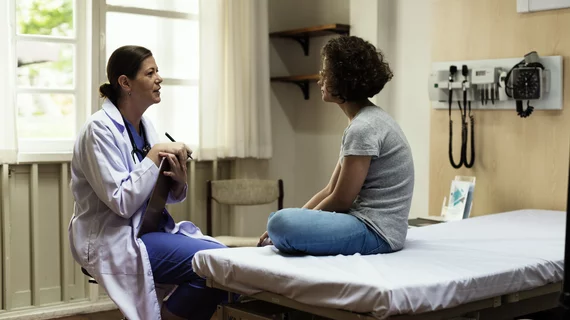Women who sit down with PCPs are more likely caught up on vital cancer screenings
Positive communication between patients and their primary care providers pushes individuals to follow through with crucial health visits such as cancer screenings, according to research published Tuesday.
Women 50-65 years old have the lowest cervical and colorectal cancer screening rates among groups recommended for such exams. But those who discussed a care plan with their PCPs were more likely to have undergone both screenings compared to women who weren’t caught up on either.
This also proved true when comparing women who were up to date on both exams in accordance with U.S. Preventative Services Task Force recommendations compared to those caught up on only one, University of Michigan researchers reported Aug. 24 in eLife.
“We showed for the first time that the relationship between the PCP and the woman was the important distinguishing factor in dual cancer screening,” explained Diane M. Harper, MD, MPH, a primary care physician with Michigan Medicine and professor of Family Medicine and Obstetrics & Gynecology at the Ann Arbor medical school. “This creates a hypothesis that comprehensive cancer screening may best be accomplished through a PCP-patient relationship and not through targeted single cancer site screenings.”
The findings are based on a 14-question survey administered to nearly 400 adults in southeast Michigan. Out of all respondents, 54% were up to date for both cervical and CRC screenings. Twenty-one percent, meanwhile, were current for cervical screening, and 12% for CRC only.
Only one question—"Did your primary care physician involve you in the decisions about your healthcare as much as you wanted?”—was significantly associated with having completed both screenings compared to cervical alone.
Additionally, multivariate analysis revealed that age, race/ethnicity and PCP-patient communication were associated with completing cancer screenings.
“We showed for the first time that the relationship between the PCP and the woman was the important distinguishing factor in dual cancer screening,” Harper added Tuesday.

